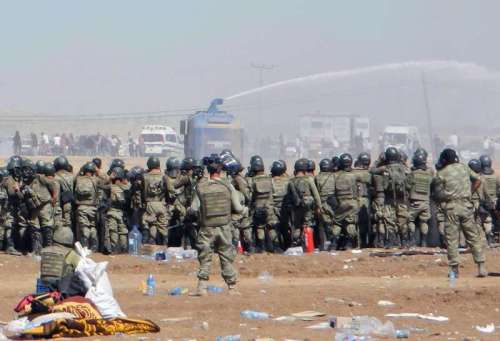
Turkish authorities are hindering the access of sick and wounded Syrian Kurdish refugees fleeing Syria due to the cruelty and brutality of Islamic State (IS) terrorist group, the Syrian Observatory for Human Rights (SOHR) reported .
The SOHR added that border guards were slowing down entry procedures by forcing the refugees to wait for hours before allowing them access.
The London-based NGO added that some 5,000 Syrian refugees returned to Kobani city in the last 24 hours due to the “poor conditions found in Turkey”.
Kobani, considered one of the main Kurdish enclaves in Syria, has been under attack over the past week by IS jihadists, who have seized control of around 60 nearby towns.
SOHR said earlier in the day that more than 150,000 Syrian Kurds had fled their villages on the outskirts of Kobani in the northern province of Aleppo since the offensive began nearly a week ago.
The IS proclaimed an Islamic caliphate June 29 in areas under its control in Syria and Iraq.
The Kurds, who live in Iraq, Syria and other nearby countries, have become a target for the Sunni radicals due to their stiff resistance to the advance of IS forces and their opposition to the extremists’ strict interpretation of Islam.
The Syrian Kurds make up 9 percent of the Syrian population and are concentrated mainly in the north and northeast of the country.